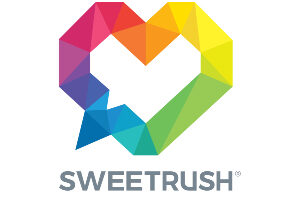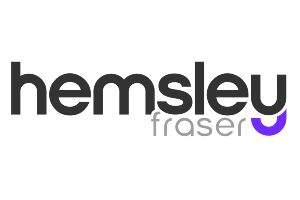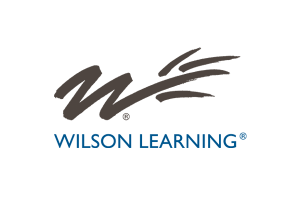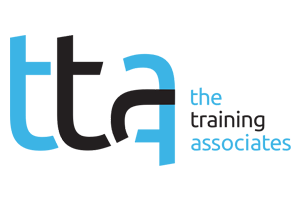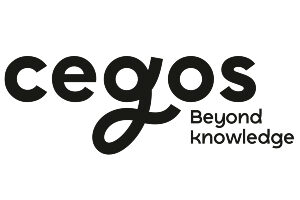Coaching is a valuable tool for professional development, benefiting both coaches and coachees and boosting business outcomes as a result. However, a culture of coaching and continuous feedback doesn’t build itself … especially in a digital environment. To learn how learning and development can help, we spoke with Erin Goldman, CPTM, manager of people development at ZipRecruiter, Sharon Delaney McCloud, director of corporate communications at UNC health system, and Ellie Soccorsy, L&D advisor at edyn. Listen now for expert insights on:
- How coaching can deliver the meaningful development opportunities employees are looking for.
- The skills leaders and coaches need to give feedback, and how to develop them.
- How technology can support coaching in the flow of work.
Listen Now:
Additional Resources:
- Course: Training Industry’s Leading Leadership Development Certificate
- Article: How to Receive Feedback: A 5-step Checklist
- Article: Show Your Support: How to Build an Effective Coaching Program
To learn how you can support employee performance across the employee lifecycle, download the complimentary Employee Journey Map below:
The transcript for this episode follows:
Speaker 1:
Welcome to The Business of Learning, the learning leader’s podcast from Training Industry.
Michelle Eggleston Schwartz:
Welcome back to The Business of Learning. I’m Michelle Eggleston Schwartz, editor-in-chief here at Training Industry, here with my co-host, Sarah Gallo, a senior editor.
Sarah Gallo:
Welcome. This episode of The Business of Learning is sponsored by Training Industry Courses. In the show notes for this episode, you’ll find a complimentary employee journey map job aid, courtesy of the Agile Certification for HR and L&D Certificate, which will help you support employee performance across the employee life cycle. Here’s a brief message from our sponsor.
Speaker 4:
The Certified Professional and Training Management Credential, or CPTM, is designed to convey the essential competencies you need to manage your training organization. When you become a CPTM, you gain access to alumni resources like monthly peer round tables and a full registration to the Training Industry Conference and Expo. If you start today, you can earn the CPTM credential in as little as two months. To learn more, visit cmpt.trainingindustry.com.
Sarah Gallo:
Coaching is a valuable tool for professional development, benefiting both coaches and coachees, and boosting business outcomes as a result. But in the past, coaching was often reserved for a select few high-potential employees on a set leadership path. But now, employees across levels want and deserve coaching that can help them improve their performance. But a culture of coaching and continuous feedback won’t build itself, especially in a digital environment. To learn how learning and development can help, we’re speaking with Erin Goldman, manager of people development at ZipRecruiter, Sharon Delaney McCloud, director of corporate communications at UNC Health System, and Ellie Soccorsy, L&D advisor at Eden. Erin, Sharon and Ellie, thanks for speaking with us today.
Sharon Delaney McCloud:
Hi, it’s great to be here with you all.
Ellie:
Hi, thank you for having me on.
Erin Goldman:
Yeah, this is exciting. Thank you so much for the opportunity to join the conversation.
Michelle Eggleston Schwartz:
Yes. Thank you so much for joining us here today and welcome to the podcast. We are very excited to have this conversation. Coaching is a really important aspect to building and improving employee performance in the workplace, and it provides that sense of on demand and personalized support that employees need. And so I would just love to hear from each of you kind of your thoughts on coaching and why it’s in effect the way to develop employees in today’s environment.
Ellie:
So I’ll start, then. I think, especially in today’s work environment, we know how much everything has changed over the last few years. And coaching is a wonderful tool because it’s not one size fits all. It can be super personalized depending on the experiences of the individual and the organization, which is especially important at the moment. And in many ways as well, it’s led by the person that’s receiving the coaching. So they can really communicate about what it is that they want to get out of it, which again, leads back to our individual experiences. That would be my main thoughts on that question.
Sharon Delaney McCloud:
I’d like to add that I think in today’s environment, more so than what we’ve seen in quite some time, is that the typical kinds of benefit or accoutrements that corporations and companies might offer their employees, aren’t going to cut it anymore. Like flex work time or gym memberships or onsite cafeterias. All those things that we might have considered benefits in the past, they don’t measure up anymore because of the big quit, the great resignation, whatever it is. And I love the Training Institute puts out some terrific content about how one of the biggest things that we can do to keep our top employees and then attract new talent is to offer training, learning, and development. And part of that is the coaching piece. And I think once employees realize just how valued they feel by the company, we’re going to keep them longer. And so the coaching is a critical element, in my view, to being able to bolster our organizations, to be able to keep the talent. And that then leads to the bottom line doing well.
Erin Goldman:
I would agree. I think coaching is a really unique addition to what we can offer to employees. And I think, again, what makes it so effective is exactly that it’s on demand. It’s personalized. As Ellie mentioned, it’s not a one size fits all and it really does…. It’s driven by the employee, right? They’re empowered to unlock what’s right for them through that supportive inquiry and the ongoing feedback from a coach. And I think that’s a really key way to retain our employees and help them grow and develop at our organization and beyond.
Sarah Gallo:
Those are some great points. I love what you mentioned, Sharon, about those kind of true employee benefits. People aren’t looking for a free lunch, they’re looking for one-on-one coaching. So I think that’s super important to remember. Like we mentioned before, remote work and hybrid work has really emerged as a result of the COVID-19 pandemic. So with that in mind, what does coaching look like in this increasingly digital workplace that we’re all operating in now and how can technology really support that in the flow of work?
Sharon Delaney McCloud:
I don’t know about you all, but I feel like for the teams that I’ve been working with and the people I coach, I almost feel the digital meetings provide an element of psychological safety because you’re not in the same room. And even though it’s a one-on-one customized experience, maybe some of the nerves or some of the apprehensiveness that might have been a part of coaching sessions before, until you build that trusted relationship, your guard is down a little bit more when you have this digital experience, the virtual meeting. I don’t know about you all, but have you experienced something similar?
Ellie:
I would absolutely agree with that. It’s definitely something that I’ve seen and something that I can personally relate to as well in the own coaching relationships that I have had. And I think the only other point to add to that is that I think it can be so much more instantaneous than it would be if you were basing in the office, you would have to go and find that person, whereas now it could be very much on demand. Just one quick discussion that could take five minutes. You could do that through Teams instead of having to book a meeting room or something else. So I think in many ways it does support it to be very much more on demand. And I do completely agree with you, Sharon, about the psychological safety.
Erin Goldman:
I think in addition to psychological safety, that just in time kind of piece is also really what kind of levels up and makes it that much more powerful. And it can be kind of layered on top to be that just in time training where the coaching or feedback is readily available for when and how it is needed for the learner. And I think that does is create a really powerful opportunity for learning. Either validating the continuation of that behavior in the moment, or deciding to change it as you kind of move forward in the flow of work without kind of skipping a beat. You can really get that immediate feedback and then continue on to implement what you’re kind of learning and growing in that moment.
Michelle Eggleston Schwartz:
Yeah, I definitely agree. Technology is really enabling that just in time feedback from managers and coaches that employees really need. And as we touched on before, today’s employees really want professional development and guidance as opposed to those other benefits. And so how can coaching create these meaningful development opportunities that today’s employees are really looking for?
Erin Goldman:
I can start with this one. I think we definitely hear these themes kind of across industries and employee engagement surveys. Finding a way to provide those opportunities for employees can really be key in some of those retention strategies. And I think in my mind, the professional development component kind of starts with a vision. A goal, a desire to grow or evolve in some way that is meaningful to that particular employee. So if that is kind of the what of professional development, I think coaching can be the how. Employees can really accelerate achievement of those goals. And I think going back to providing that personalized and that timely guidance, I think it makes coaching a really powerful tool in supporting the behavior changes that are needed to realize those professional development goals.
Sharon Delaney McCloud:
One thing I’ll add, which, for me, having worked at large organizations, then startups, then being a founder myself, and now back to a large organization, the one thing that I think, particularly for emerging leaders or people at the beginning of their careers, to understand that coaching is not punitive. And as long as we set the stage at the very beginning that in your professional development journey with your company, we’re going to have some amazing programs for you. Part of that is coaching.
Sharon Delaney McCloud:
But you have to understand that feedback, both opportunities or challenges that need to be met or praise or positive reinforcement, that just because someone is commenting on a behavior or something that they’d like for you to course correct on, does not mean you’re going to get fired. And I know that I had worked in an industry where getting fired was always at the tip of what we thought every manager’s tongue. And so early in my career, I was a terrible coachee because I always thought every time I was called into the principal’s office, per se, that, “Oh, my gosh, I’m going to get fired.” When in fact it was, :No, I want to give you some feedback so you can grow.” But it took a minute for me to get that. Now I’m the reverse, later in my career, certainly understanding that. And I always make sure now for the people I’m coaching, that I tell them upfront, we’re going to have some really honest conversations, and I want you to give me feedback as well, and this is not punitive. This is growth. And so I think that’s an important thing always to point out, especially if you are bringing in and coaching someone who maybe hasn’t been with an organization that’s had professional development as a part of their culture.
Ellie:
That was what I was going to say, Sharon. I think, absolutely, I agree with that. I think it also comes from the culture of the organization and whether you’ve been immersed in that. So perhaps in the occasions where you were kind of expecting to be fired, it’s because the culture maybe didn’t represent the growth mindset rather than your personal fears about being fired. Maybe that also comes into it. And I think that is really key in terms of introducing people into the culture. It’s just explaining that, what you’ve highlighted, it is an ongoing process and there will be things that you have done fabulously and there’ll be things that you would want to improve in. But that’s the whole process of coaching. And I think that it will help people to develop even more so because they can also identify their own areas in which they want to grow and then ask for support with those too, not just for other people who have highlighted. So overall, I think it’s a really good tool in terms of helping people to get that professional development.
Sarah Gallo:
I love what you mentioned, Ellie, really about that kind of being a culture issue. When employees feel like they can’t really trust going into those feedback conversations without feeling like they’re going to get fired. Do you all have any tips for how you can create that kind of psychologically safe, trustworthy environment for employees to make sure that feedback is constructive and not an anxiety inducing process?
Ellie:
I would say, I think it comes from everything being a two-way conversation. It is incredibly powerful when you can see, for example, your manager, putting into practice something that you have suggested in your feedback. And then you can understand that it’s reciprocal. And that just goes for all relationships in life. You don’t want someone to just be telling you what you could do better every time. You want it to be a two way conversation. And that’s how you develop that trust. And that trust is very much person to person. So it’s about that coachee and coach relationship.
Erin Goldman:
I think one thing I would add to that, Ellie, I love that, the two way kind of nature of that conversation and modeling it, right? As leaders to say, “I’ve heard your feedback and here’s the ways that I’m adjusting.” And I think even going back to what Sharon was mentioning before about, this is not punitive, right? So being clear about the reason that you’re providing feedback. “I care about your growth and development. And I’m providing this feedback because you’ve said that you’re interested in growing in this way.” And I think being clear in that and inviting people into the conversation, right? “I have some ideas on ways you can improve. Are you open to hearing them?” So I think kind of that offering of permission and the invitation, in addition to modeling it, I think can be a pretty great way to create that kind of culture and build that trust.
Michelle Eggleston Schwartz:
Those are some great points there. I know one thing I love about hosting this podcast is really hearing all these firsthand experiences from learning leaders like yourselves. And I’d be interested to hear if you guys could kind share what’s going on in your own organizations and how you’re using coaching and feedback to support and develop employees.
Sharon Delaney McCloud:
What I like about my organization, which is large, there’s 40,000 employees, and almost all the senior leaders across the health system have coaches. And I think that, right off the bat, tells the whole organization that we are all here to help support each other to all get better at our jobs, to become better people. And for us, in particular, we make sure that everybody at the onboarding process understands that the organization is here to help you grow as a whole person. And so, that to me, was just so refreshing to come into a place where they truly, and I truly do feel they want to support me as a whole person, not just my deliverables at the end of the day. And more specifically the actual… What the framework looks like is we have a three step coaching process that we put into play that’s probably pretty familiar to all of you. When we begin a coaching relationship, step one is creating clarity. Step two is exploring options around that. And then step three is moving to action. And we put that together in that first meeting, almost like a discovery meeting and where we’re getting to know each other and figuring out what the goals are. And I just really embrace the whole idea. I think Ellie, what you had said, a growth mindset. That just cascades down through our whole organization, which sets us up for a successful coaching program.
Erin Goldman:
I love that you’re starting with kind of the leaders and showing that we really care about the whole person, we’re developing you. And hey, look, we’re doing this at every single level and it’s okay to kind of grow and lean into where you might want to develop, or things like that. I think that’s a really cool approach. One of the things we’re doing at ZipRecruiter is actually kind of based on the prior conversation we were just having about culture. So we’re really striving to create a feedback driven culture where feedback is regularly delivered, but also solicited in support of our own growth and development. And in practice, what that’s looked like. We’ve had a couple of kind of key components so far, starting with an organization wide course for our people leaders focusing on, what are those skills that you need? How can we help you lean into those behaviors and build those? And then what kind of tools do we have to support those ongoing feedback conversations? And I think one of my favorite parts of that course was, we had a module around coaching and a tool kit for coaching questions that you can just take with you and use this as kind of a practical guide as you’re going into feedback conversations, and you’re building kind of that coaching and feedback muscle along the way. And then I think the kind of layer on top of that, which is really important, is how we’re encouraging people to have different and distinct feedback conversations over time. So certainly around those weekly or biweekly one-on-one meetings where you’re unblocking and supporting team members, but you’re also having monthly touchpoints with folks to focus on their performance and development, again, leaning into those coaching questions. And then all of that is kind of recapped by our midyear and year end review conversations. So I think again, making sure that there’s touch points where you can build that culture through those continued conversations and building of those feedback muscles is what we’re hoping will help kind create and amplify that feedback driven culture over time.
Ellie:
Both of what you guys have said sounds amazing. And your organizations sound like great places to work. I wanted to talk specifically about one feedback thing that we’re doing at Eden, which is all around 360s, which I’m sure you guys have as part of your coaching and feedbacks at your organizations. So we have the Eden 360, which is a tool that can help managers, leaders, and regular staff members as well. And it focuses on the Eden values. So it will basically ask people who work directly with this person, people that are not in their team but they associate with, and their direct line manager questions based on the Eden values and how they perceive this person to be performing. And this is all taken anonymously. The learning and development team will put this all together. And then we will sit and have a coaching conversation with the individual that has gone through the 360-feedback process to understand what their thoughts are about it. They also fill it out for themselves and that’s included in the anonymous report, I should add. So we put this all together and we discuss that and identify potential areas for improvement and how we could possibly support them as well. But this is an ongoing conversation and it’s been rolled out across the organization, but particularly as part of a leadership development program that’s currently going on about how to receive and give good feedback.
Sarah Gallo:
Yeah. I love that. Thank you all for sharing. It’s great to hear how all of your organizations are really prioritizing coaching, which, like we mentioned, is just so important. But I’d like to switch gears a bit and talk more a bit about what we shouldn’t be doing or kind of the old ways of operating. So in other words, the annual performance review, why is this traditional annual review no longer really an effective way to evaluate and manage performance? And how can ongoing coaching and feedback help manage performance more proactively?
Sharon Delaney McCloud:
Certainly a conversation once every 12 months is not going to deliver results that you’re hoping for, especially if there are behavior changes that are necessary to help the person grow and reach their goals. And so just like what Erin and Ellie have said, just a constant feedback loop. But in the old days, that’s what you did. You had your annual review. The employee filled out their side of it, the manager filled out their side, and then they went into this meeting. And then you were…. I worked for a large blue chip organization and you were given a score one through five, but no one ever got a five. You would hope to get a four. And if you achieve the four, then you might get your raise. And I feel like a lot of that is going away. It’s aged out. It is not what drives people today. I think we all have come to understand that in order to succeed in today’s workplace and in today’s environment, it’s got to be so much more than that. And we’re not making widgets and just being graded on that. We are being evaluated as whole people. So having the constant feedback loop, like Erin said, both giving and soliciting, is necessary for all employees and their managers today.
Erin Goldman:
[inaudible 00:20:37] your thought on Sharon, with one conversation once a year. I mean, that could maybe give you a snapshot of where your performance is, but I think it definitely goes back to the kind of theme of on demand and personalizes that we’ve been talking about with coaching. The annual review is neither one of those things. Of course, the feedback that you’re receiving at your annual review is about you, right? It’s about that particular employee. But it’s often provided in potentially a narrow framework with a few required questions across the organization for every employee. I think a talented manager can certainly leverage that framework and provide meaningful feedback in, again, kind of that snapshot of your overall performance. But if you’re looking to really manage performance proactively, you need a lot more to really set the foundation to correct that performance along the way, rather than discussing it once or maybe twice a year, if you’re lucky to have two conversations.
Ellie:
I think the only thing I would add to that is that we are seeing a shift more towards where learning is becoming a much larger focus, for individuals and for organizations. And exactly like Erin and Sharon have both said, it’s all about just in time and… Well, but it’s a large part of coaching, is being able to have that when you need it and to be able to learn in that moment. We know from research that being able to find the information that you need at the time that you need it is going to have a much larger impact. And so actually the impact on learning is a lot greater when we can have these little catch-ups when we need them and not having an annual review, or still having that but it not being the sole point of feedback, is going to make it much easier for people to learn. You have a bit more of a sounding board as you’re trying to experiment and learn through doing, essentially. So without that, you don’t really have any kind of indication as to how well you’re doing, or if you’re doing something wrong. And the pace at which things happen is just a lot quicker these days. If I want to learn something, I can go on YouTube and five minutes later, I can watch a tutorial that teaches me how to do it. And that’s the world that we live in. So the more frequently we can have these sounding boards for ourselves, the better it’s just going to be in terms of how quickly we can learn and adapt to growth.
Michelle Eggleston Schwartz:
Definitely. I completely agree. You guys have shared such great points and really make the case for ongoing continuous feedback and coaching and why that’s so critical. And we definitely can’t limit ourselves to that annual performance review to give that feedback. And as we know, giving constructive feedback is not easy. It can be very uncomfortable, and oftentimes leaders are just not prepared to give feedback. And so I’d be interested to hear, what skills do leaders need to give effective feedback? And how can training really help develop them?
Erin Goldman:
Love this question. I think it’s so easy to forget how difficult giving effective feedback can be. And sometimes we think, “Oh, if we just tell everyone to give regular feedback, that’ll solve our problem.” But I think anybody who has leaned into a difficult feedback conversation, or maybe shied away from a difficult feedback conversation, knows that it’s just not that simple. And in terms of skills, there are kind of four main areas that come to mind for me. I think how we approach feedback is an important skill, right? Timely with permission. I think the second piece of how we deliver that feedback is really important. And you can choose your favorite framework and alphabet soup to kind of figure out what framework you’re into. I like the SBI model of the situation, behavior, and impact model of how kind of to approach delivering that feedback. And then I think the third skill that comes to mind for me is the nuances of feedback. So overcoming bias in feedback, how to understand and acknowledge that emotions are going to play a role in feedback and often will make it feel difficult, or maybe how to deal with third party feedback. I think those are some important skills, may be a bit more advanced for how to give feedback. And then I think the fourth one which we’ve talked about before is the importance of how to request and receive feedback yourself. I think that can definitely be overlooked and often forgotten in kind of the skills development of giving feedback. That’s an important part of the conversation.
Ellie:
I think you make a fabulous point, Erin, about bias. And I would like to add that I think unconscious bias and being aware of what your unconscious biases are, is also super important. We all have them, which can be a little surprising, but yeah, we do. And it’s important to be aware of them. And particularly for international organizations, I think having a cultural awareness as to how different cultures may receive the way that you’re explaining something, particularly when it comes to feedback, in order to make it a receptive conversation, is something really to be aware of, just to echo your point. And empathy is also a really key one, because we’ve all been there, receiving feedback that we didn’t particularly [expect]. We weren’t ready to hear it. And so having that empathy for the person that is on the receiving end or even being the person that is receiving the feedback is really crucial to having a good two way communication.
Sharon Delaney McCloud:
I’ll add that for me, early on as a manager who was coaching people, I had to keep reminding myself to stop talking and listen more. I think that’s something that people who are maybe new in a position or they’ve inherited a team, or they’ve been promoted and now are leading people that they used to be comrades with or teammates with. And now all of a sudden that relationship has changed. And understanding that coaching is so reflective and that needing to be quiet and allowing the person you’re coaching to come up with the solutions as well. It’s not a directive approach, but it’s a collaborative and even more so, helping this person understand, you can come up with the solutions here. Let’s work together to get this done, and let them have ownership of the ideas on whatever the behavior changes or whatever the skills gap development is. Whatever the need might be. And so that’s something that I always had to continue, and still continue to myself. Talk less, listen more.
Ellie:
It’s definitely harder than it seems sometimes.
Erin Goldman:
And I think that takes practice, which I know you asked about how training can help develop these skills. I think rather than just put the frameworks out there and say, “Here, you’re aware of the skills. Go forth and use.” It’s really in important opportunity for training to provide a safe space to practice those skills. So whether that’s workshops designed to provide beginner level activities for how to make feedback more effective, or it’s facilitating round tables where team members come together, bring real life issues to fellow leaders, and then that space is given for them to kind of problem solve and role play. I think of course, confidentiality and trust are paramount, thinking kind of that latter example. But I think it’s a really interesting and powerful role that training can play to provide that safe space to build those skills. Because as you mentioned, Sharon, it’s going to be a forever reason to continue asking yourself, “Am I giving space for this person to reflect and refine? Or how can I really make sure that I’m practicing these skills in the moment?”
Sharon Delaney McCloud:
And we do that, Erin. I’m so thankful that we have such a strong learning and development culture at UNC Health. We actually do workshops, just like you’re saying. Right now we’re even doing them virtually and we put people in breakout rooms in teams of two and they actually… We give them a scenario and we make them practice. And then we come back together in the general room and then talk about it. And talk about what was uncomfortable. What worked, what didn’t work, and you got to do it. You got to make it happen.
Sarah Gallo:
Yeah. That’s super important. Like mentioned Erin, you can’t just hand people a framework and send them on their merry way. I mean, we’re dealing with humans, so it’s just not that easy. But I think it’s going back to what Ellie mentioned. Sometimes we aren’t ready to hear that feedback that we do receive. So what tips do you have for leaders who are on the receiving end and want to make sure that they’re receiving feedback effectively and can leverage it to improve their performance?
Erin Goldman:
Well, I think one thing… I think it was Ellie, brought up earlier, speaks to me very loudly in this question is, a growth mindset. Starting with a growth mindset has to be the first thing that leaders are leaning into when they’re receiving feedback. And I think knowing that you can build those skills to really believe that your talents can grow through that feedback, hard work, and practice, is paramount. And then I think there’s a couple of other things I try to keep front of mind, which would be to be open to feedback, of course. Remember it’s critical how you’re asking for feedback. I try to ask for feedback regularly, try to be specific, and I try to always say thank you. Always say thank you at the end. And I think my go-to question when I ask for feedback regularly is, what can I do differently or better next time? Just to make that space for someone to give feedback. In an effort to be more specific, I’ll try to pinpoint if there’s a skill I’m working on or what I want input on, right? Is it the strategy behind it? Is it the process? Is it my approach? And then just going back to recognizing that giving feedback is not easy, so the more I can end every conversation with a thank you for taking the time to provide me that feedback, I think that’s really important to me personally.
Sharon Delaney McCloud:
I think also… And I love all that. I’m writing notes here because I think it’s such great stuff that you all are sharing. Positive intent. That’s something I constantly… I have sticky notes. Positive intent. I have to do this when I’m talking to my teenager as well. It’s not that different sometimes. But especially with a new person that you don’t know well and you’re trying to build that relationship and talk about how we all want to be here for each other and be the most supportive, and in your journey here, we want you to achieve everything that you hope to. And as a part of that, we’re going to have constant feedback loops. And as part of that journey, we want to start everything with positive intent. And using your words carefully so that it does not come across accusatory or defense or punitive. And so just starting every conversation with positive intent.
Ellie:
I think you make a fabulous point. And being open to coaching and not taking it personally, even though that is really difficult, is really important. And definitely, as you said, Erin, making sure that it’s something that you ask for actively, and then you do appreciate it as well. So you could do that by, as you said, saying thank you. And one of the biggest ways that you can make that impact is to demonstrate that you have acknowledged the feedback and change your actions if that’s the appropriate thing to do in that situation. There’s nothing better than seeing somebody actually put into practice feedback that you’ve given. And you can demonstrate through your actions that you have listened and then taken that onboard, when the situation is appropriate, I guess.
Erin Goldman:
That’s such a good point, Ellie. And I think the other thing that we have to keep in mind is, as you mentioned, just because you received the feedback doesn’t mean it’s necessarily that you have to act on it, right? There’s always an opportunity to learn in whatever the feedback that you’re receiving is, even if you don’t agree with it. But if you are deciding to change your actions, following up with the person that gave you that feedback is such a powerful way to build that feedback relationship. Right? So sharing, like you said, what you heard and how you’re adjusting your behavior. But I think also just as importantly, if you’re choosing not to take the feedback or change your behavior, to have that conversation with them and acknowledge why you’re not choosing to take that feedback at this time. I think that can be a really great way, as you said, to kind of not only thank them for their time, but acknowledge it and really they can see the feedback in action.
Ellie:
Yeah, absolutely. And then you’ve continued that dialogue, so it’s not going to be just, “Hmm. I didn’t listen to you. And I would rather you didn’t give me any more feedback in the future.” But actually, “Here’s what I thought about it and I would love to hear your thoughts again next time.”
Michelle Eggleston Schwartz:
Definitely. Those are such great points. Before we wrap up here today, are there any other skills that leaders need in order to become effective coaches that we haven’t already touched on?
Ellie:
I wouldn’t say it’s so much a skill, but it kind of is a skill because it takes a long time to develop it, I suppose. It’s just coaching in a team specifically requires you not to micromanage the activity of your team members. And that can take a really long time to develop and to build that trust in your team as well. So it depends on turnover and what your team looks like. But empowering your team members and not micromanaging them can have such a positive impact on how much they will learn and experience through trying things themselves and then getting feedback from you. So I would say absolutely not micromanaging, if that can be a skill. I don’t know if there’s a word for it. But allowing your team members to be independent and then having those feedback conversations regularly.
Erin Goldman:
So funny that you say that, Ellie. The one that I have here, also not sure it’s a skill, but the last one is let go. Coaching is not about the coach, right? It’s about the person who’s learning and growing. So the more that leaders as coaches can let go, be in the passenger seat, so to speak, I think the more successful that coaching partnership will be.
Sharon Delaney McCloud:
On what Erin and Ellie said, being a partner for the person you’re coaching. Really not being in the driver’s seat, but in being in the passenger seat and supporting them in that journey.
Michelle Eggleston Schwartz:
On that note, Erin, Ellie, Sharon, thank you so much for joining us here today and having this wonderful conversation. How can our listeners get in touch with you after today’s episode if they like to reach out?
Ellie:
Well, you can find me on LinkedIn. My name is Ellie Soccorsy. My last name is spelled S-O, double C, -O-R-S-Y.
Sharon Delaney McCloud:
You can find me on LinkedIn as well. Sharon Delaney McCloud. That’s S-H-A-R-O-N. Delaney is D-E-L-A-N-E-Y. McCloud is M-C-C-L-O-U-D.
Erin Goldman:
You can also find me on LinkedIn. And my name is Erin Goldman, G-OL-D-M-A-N. I’m the manager of people development at ZipRecruiter. And I could talk about feedback and coaching all day, so do not hesitate to reach out and start a conversation.
Sarah Gallo:
Wonderful. Well, on that note for more insights on coaching and feedback, and to view the highlights from today’s episode and animation, check out the shownotes for this episode at trainingindustry.com/trainingindustrypodcast.
Michelle Eggleston Schwartz:
As always, don’t forget to rate and review us on your favorite podcast app until the next time.
Speaker 1:
If you have feedback about this episode, or would like to suggest a topic for a future program, email us at info@trainingindustry.com, or use the contact us page at trainingindustry.com. Thanks for listening to the Training Industry podcast.


